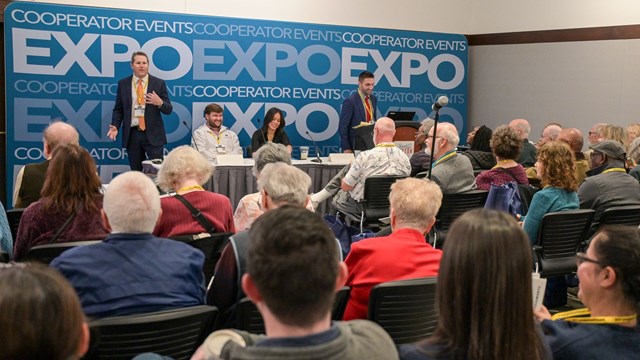
Many of today's condominium owners depend as much on Internet access as they do on electricity, heat, and water. After all, who needs the fridge to run if you can't get online to order the groceries or take-out? Who needs a morning shower when you're working from home on the computer? Being online is a basic, and as such, homeowners expect their online services to be not just impeccably reliable, but high-speed and low-cost, too.
But how often do homeowners get what they need? Despite the growing demand for high-speed Internet, and its availability to 90% of Boston residents, only 40% of Boston households subscribe to high-speed service. Thirty percent use slower dial-up access and 30% of Boston homes have no Internet at all. In response, and to move the city into the forefront of a growing trend in municipal wireless, the city of Boston has launched a pioneering initiative that could revolutionize the digital landscape for property owners and businesses alike.
Wireless access, also known as WiFi, allows computers, laptops, phones, music players and other electronic devices to connect to the Internet through radio waves. In most major cities, including Boston, free WiFi is sometimes available in public places like coffee shops and libraries. In other places, like a home or business, people pay for Internet access through subscription fees that can be as high as $50 or $60 a month.
Wireless Internet for $10 to $15 a Month
A little less than two years ago, Boston's Mayor Thomas Menino appointed a Wireless Task Force to study ways of providing inexpensive wireless Internet access to anyone within city limits. Last year, the Task Force concluded its work and recommended the city designate a non-profit entity to create a citywide, open access, wholesale-only wireless network. The result, they said, would be "low-cost service to every neighborhood [in the city] while providing a platform for innovation unlike any in the nation." A wholesale network, built using the city's already existing infrastructure—light poles, traffic signals, and public buildings—would compete with telecom giants Comcast, Verizon, and others who currently dominate the market. Lower wholesale costs, they reasoned, would allow and encourage a proliferation of entrepreneurial activity. They predicted Internet connection service to homes and businesses would be as low as $10 to $15 a month, and from there, new applications "from inexpensive Internet phone to technologically advanced public safety equipment" would be developed.
Exciting Applications May Lie Ahead
"People are talking about a lot of exciting applications," says Pam Reeve, CEO of bostonopenair.net, the independent non-profit she launched after completing her work on the Task Force. "I think monitoring and security [over the Internet] might be very interesting to property owners, in terms [of using] wireless cameras and environmental sensors, particularly if you own multiple properties. Wouldn't it be nice to have all your buildings monitored and have all the information come back to one dashboard or central office?"
Demo Project Being Tested
Reeve is talking about a grand future, not too distant, but not around the corner, either. A year and a half after the Task Force's recommendation, the city's first demonstration program-—a square mile of network in Roxbury's Grove Hall and Dudley Square neighborhoods—is in a final testing phase.
"It's taking us longer than we expected," Reeve concedes, "but we have learned a lot. Some people might say we are taking a slower approach. I'd say it's a more thoughtful one."
"A lot of other cities have been announcing big things and getting lots of press," Reeve adds, "and then getting lots of press about the failures."
High-Profile Failures
Indeed, the Boston approach is different. San Francisco's high-profile WiFi project, which died earlier this year, relied on a multi-year contract with Earthlink. The troubled company withdrew from the contract last summer citing financial terms they could not meet. The agreement reportedly required a $14 - $17 million investment from Earthlink. Similarly, the city of Chicago recently scrapped its citywide wireless effort after months of negotiations with both Earthlink and AT& T failed to produce an agreement.
"Cities are experimenting with business models, so the Boston non-profit model may work in the end," said Esme Vos, founder of muniwireless.com, a website "devoted to municipal broadband projects worldwide that are funded or supported by cities and towns, especially those projects that incorporate wireless technologies."
"Boston's plan is quite innovative," she continued, "and the city should be commended for not just following what everyone else is doing."
Thinking Ahead Saves Money
Reeve says that in thinking about the future of the network in Boston, she would like to see all "major building renovations and new construction" think of themselves as "being a node on the network" and anticipating required needs like fiber connections, Ethernet connections, and power to the roof, to name a few. These are incremental costs to a project on its front end, she says, but they can add significantly greater costs to a project when they need to be retrofitted.
Most building projects these days automatically incorporate the technology to be wireless-ready, Reeve emphasizes, but some property owners will also want to know they can "contribute to and be part of an important citywide initiative." Others, she adds, will recognize that their property "will be more valuable and useful to the people who live and will potentially work in it."
Full Build-Out Will Come Slowly
A fully deployed build-out is still some time away. The originally optimistic estimate of completion by the end of 2008 has been replaced by Reeve's declaration that openairboston.net is going to work "neighborhood by neighborhood, as certain assets become available to us, and as our fundraising and our learning allows."
"We're treating this like a new product," Reeve said. "We've built our pilot using volunteers and donated equipment and services. We want to nail down our design, and prove that we can create something that works and that people want and can use. We're not going out there and spending millions of dollars to figure out what we can do."
Visions of a wireless future run the gamut. Reeve imagines sharing news and information in what she calls "hyper-local settings," like the population of a condominium complex. The network, she says, will make it affordable to distribute information that will only be of interest to people in a very small, local group. "Once the network is deployed in a significant area," she says, "people a lot smarter than me will think of other applications that will improve people's lives. The mind goes crazy thinking about the possibilities."






Leave a Comment